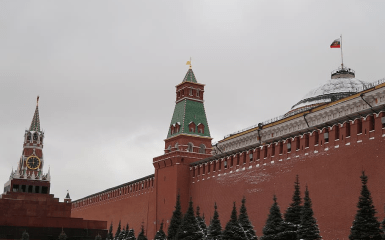Cases of treason in Russia in the last 30 years were quite rare. But after the invasion of Ukraine in 2022, their scale increased dramatically, along with prosecutions for espionage.
Points of attention
- The number of arrests for treason in Russia has significantly increased since the invasion of Ukraine in 2022, with cases often investigated by the Federal Security Service (FSB) and individuals facing strict isolation and long prison terms.
- The legal definition of treason in Russia was expanded in 2012, covering vaguely defined acts of providing 'aid' to foreign countries or organizations, leading to an increase in arrests, especially among Russian scientists working on sensitive projects.
- The motives behind the spike in treason cases include sending a clear signal to scientists to limit interactions with foreign entities, as well as officials seeking career advancement within the FSB by initiating such prosecutions.
- The surge in treason prosecutions is also driven by a belief within the FSB of the 'fragility of the regime' during times of political upheavals, prompting heightened surveillance and crackdowns on perceived threats to national security.
- The implications of the rising cases of high treason in Russia include a chilling effect on scientific collaboration and communication with foreigners, as well as heightened fears of prosecution for seemingly innocuous actions.
Why has the number of arrests for treason increased sharply in the Russian Federation since the beginning of the war.
Such cases are almost exclusively investigated by the Federal Security Service (FSB), and specific allegations and evidence are not always disclosed. The accused are often held in strict isolation in Moscow's notorious Lefortovo prison, tried behind closed doors and almost always sentenced to long prison terms, the newspaper writes.
The human rights group "First Department", which specializes in such persecution and got its name from the security service unit, counted more than 100 known cases of treason in 2023, lawyer Yevhen Smirnov told the Associated Press. He added that there are probably another 100 that no one knows about. The longer the war lasts, "the more traitors" the authorities want to catch, Smirnov said.
Why are Russians accused of treason
The number of cases of high treason began to rise after 2014, when Russia illegally annexed Crimea from Ukraine and fell out with the West for the first time since the Cold War.
At the same time, as the AP writes, two years earlier, the legal definition of treason was expanded and now covers the provision of vaguely defined "aid" to foreign countries or organizations, which effectively exposes anyone who contacts foreigners to prosecution.
According to Smirnov, such arrests — including among Russian scientists — have increased since 2018, when Putin touted a new and unique hypersonic weapon Russia was developing in his annual address to the nation. In his opinion, this was a way for the special services to show the Kremlin that Russian scientific achievements, especially those used for the development of weapons, are so valuable that "all foreign special services in the world are chasing them."
According to the AP, the Russians have been charged with treason — or less serious charges of "preparation for treason" — for actions such as donating money to Ukrainian charities or groups fighting on the side of Ukraine, attacking military commissars in Russia and even making private phone calls with friends in Ukraine about moving there.
What are the motives of the government
According to experts, several factors motivate the authorities to initiate new cases of treason.
First, it sends a clear signal that the unwritten rules have changed, and that scientists should no longer hold conferences abroad or work with foreign colleagues, says Andriy Soldatov, an investigative journalist and security expert.
It's also easier to get higher authorities to devote resources to a treason case, such as surveillance or wiretapping, he said.
According to Smirnov, the surge in prosecutions occurred after the FSB in 2022 allowed its regional units to prosecute certain types of treason, and officials in those units sought to curry favor with their leadership in order to move up the career ladder.
In addition, according to Soldatov, this is a sincere and widespread belief of the FSB in the "fragility of the regime" during political upheavals - either as a result of mass protests, as in 2011-2012, or now, during the war with Ukraine.
They truly believe it can break, he said.
More on the topic
- Category
- Ukraine
- Publication date
- Додати до обраного


